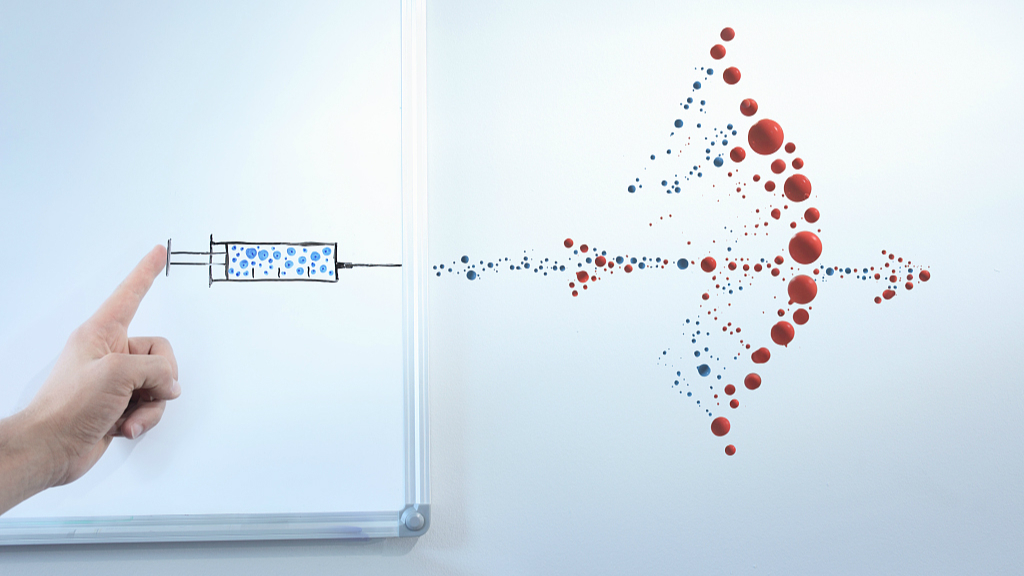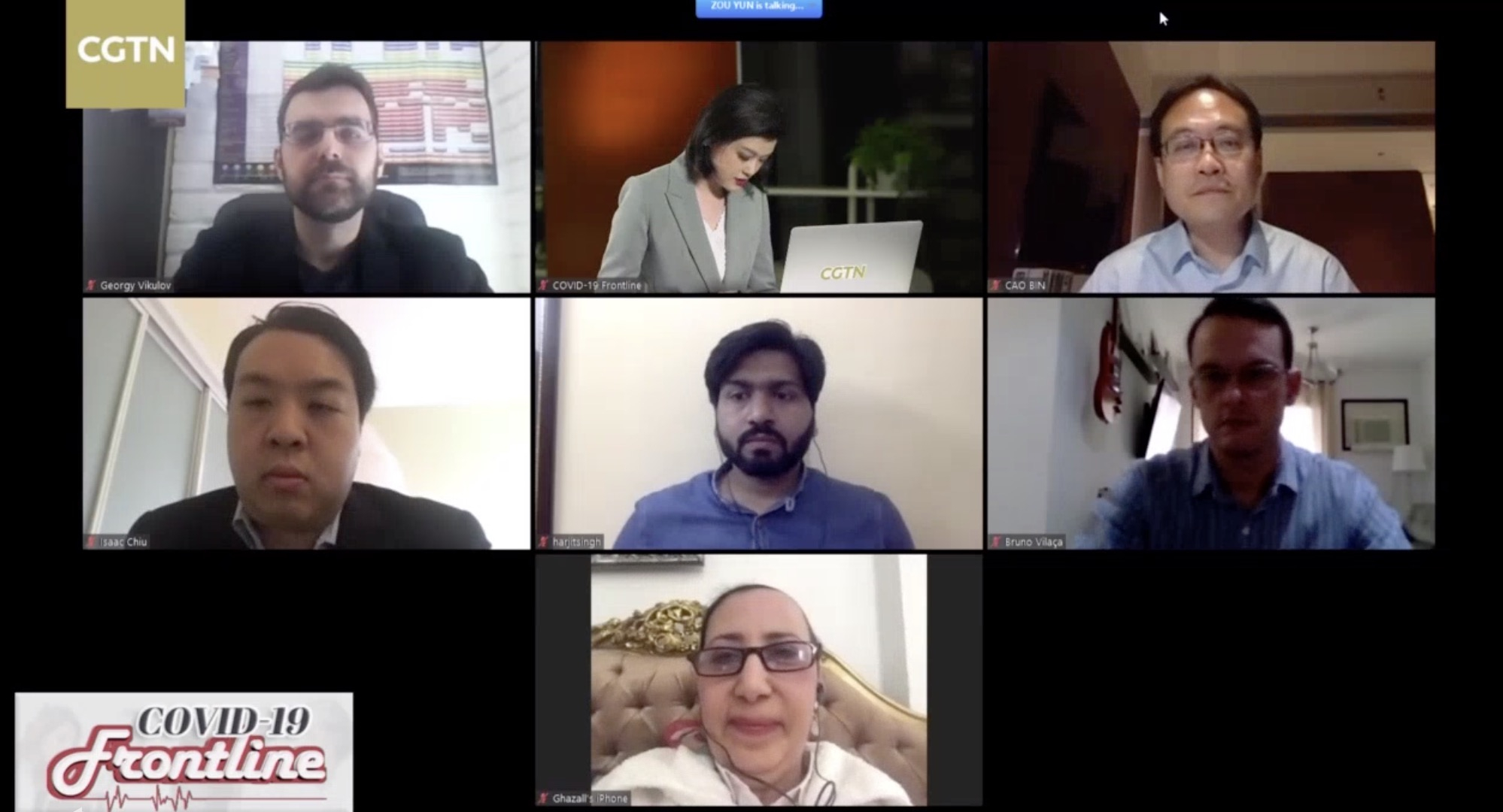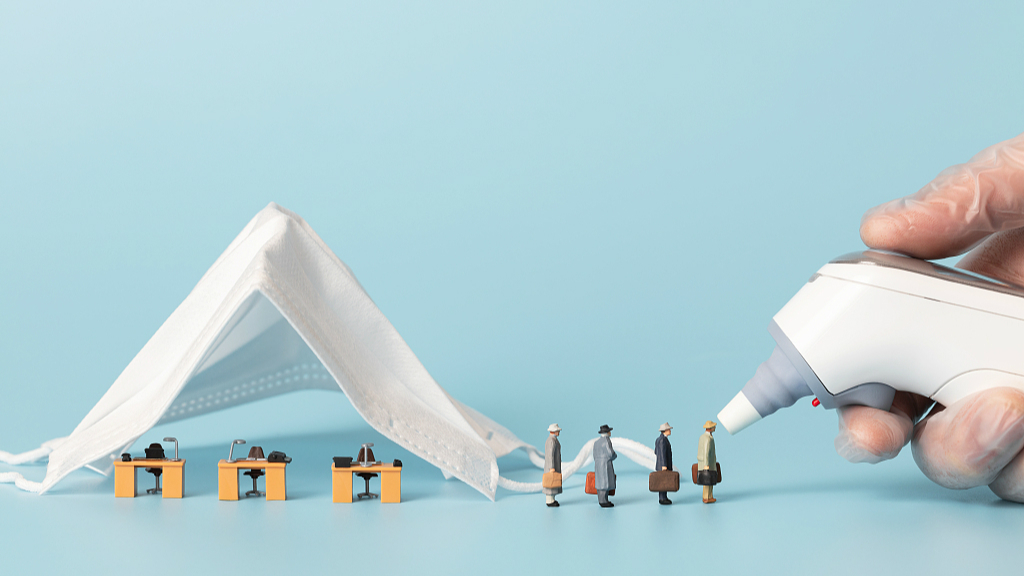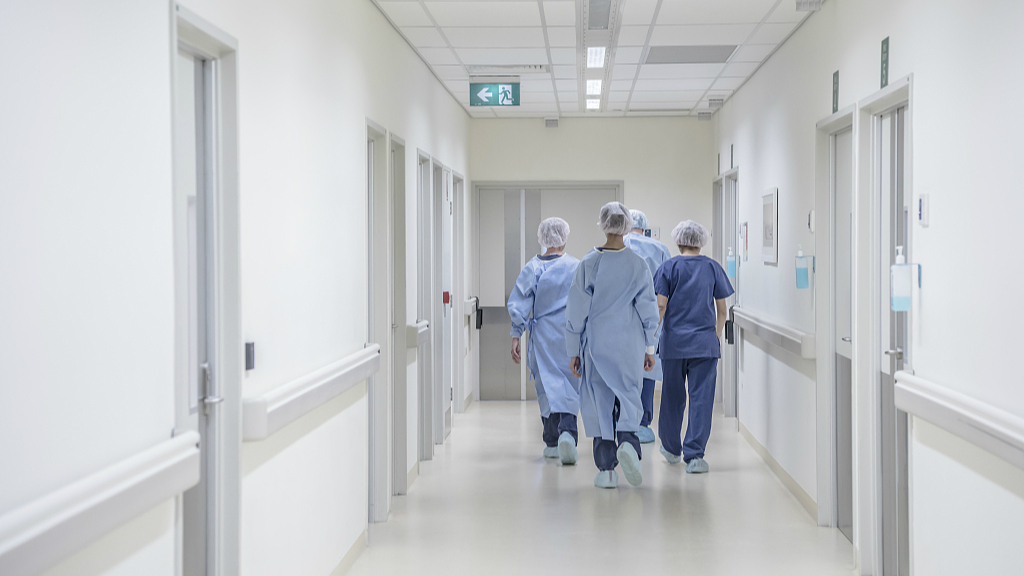Editor's note: On March 12, 2020, the World Health Organization (WHO) declared COVID-19 a pandemic, and as of Saturday (April 18), about 200 countries and regions have confirmed over 2,070,000 cases, according to the WHO. On CGTN's live program "COVID-19 Frontline," we invited medical workers and experts from China's epicenter Wuhan and from all over the world to share their experiences and take questions from social media, in the hope of providing more information for those who are battling against the pandemic.
In the latest episode of CGTN's live stream program "COVID-19 Frontline", Cao Bin, a respiratory expert and vice president of the China-Japan Friendship Hospital in Beijing, shares his experience treating COVID-19 with medics from Russia, Brazil, India, Egypt and the United States.
Live: Chinese medical expert shares COVID-19 working experience with overseas medics
Cao has served on the frontline in the center of the epidemic outbreak in the Wuhan City and now is leading clinical trials of key anti-viral drugs used to effectively treat patients in China.

Cao Bin, a respiratory expert and vice president of the China-Japan Friendship Hospital in Beijing, China. /CGTN
Cao Bin, a respiratory expert and vice president of the China-Japan Friendship Hospital in Beijing, China. /CGTN
What is the state of the antibody test in China?
Isaac Chu, Assistant professor of Microbiology and Immunobiology at Harvard Medical School in the U.S., wanted to know about the progress of antibody test sin China and how long-lasting the immunity is for the virus.
Dr Cao Bin said they haven't finished the examination yet. But according to the analyzed blood samples from patients discharged, the levels of their COVID-19 antibodies are not as high as expected. More studies need to be done to understand the role of the coronavirus antibodies which intercept the spike protein and stop the virus from binding with human cells.
04:56

Is it true that coronavirus can affect the sense of smell?
As more people around the world are infected by COVID-19, there has been a spike in people reporting a loss of smell. "Can COVID-19 damage the smell sense?" one Facebook user asked.
Dr Cao Bin said it's an unusual symptom and he hasn't met such case in his work. But there is evidence that COVID-19 can affect the brain and cause life-threatening issues such as stroke, he added.

Dr Cao Bin shares his experience treating COVID-19 with medics from Russia, Brazil, India, Egypt and the United States. /CGTN
Dr Cao Bin shares his experience treating COVID-19 with medics from Russia, Brazil, India, Egypt and the United States. /CGTN
How can you protect yourself from 'silent spreaders'?
Since some people infected with COVID-19 have very vague and possibly non-existent symptoms, figuring out how to protect oneself from asymptomatic coronavirus carriers is one of the biggest concerns among the public.
Dr Cao Bin suggested that healthcare workers need to be very careful with patients who only have mild symptoms such as fatigue and loss of appetite. Doctors and nurses need to look for the details and get to know the patients' contact history. Asymptomatic coronavirus carriers can also spread the virus, and a relatively small group of them can develop symptoms later. So people should continue to avoid gathering in public places and keep a distance away from other people.
03:38

What is the frequency of co-infection, such as the flu plus COVID-19?
Georgy Vikulov, director of Research Center for Prevention and Treatment of Viral Infections, Moscow, Russia, asked about the rate of co-infection.
According to Dr Cao Bin, some patients with COVID-19 are also infected with other respiratory viruses. The past three months were also the flu season in Wuhan. So it comes as no surprise that there were patients co-infected with both kinds of viruses. But the number of such cases in Wuhan was not high.
The importance of protecting hospital staff
Harjit Singh Bhatti, National President of Progressive Medicos & Scientists Forum (PMSK), New Delhi, India, wanted to know why there are still many healthcare workers infected with COVID-19, given that there is enough personal protective equipment provided in the country.
"Doctors and nurses should protect themselves, then they can take care of the patients. But the protection of healthcare workers is not the job of doctors and nurses themselves. It's the job of the institute, the whole hospital," said Dr Cao Bin. The hospital staff should receive proper training and should not work for too long in ICU. In Wuhan, the nurses are on a four-hour shift and a doctor’s working hour is less than six hours a day. Plus, hospitals should prepare hotel rooms with nutritious meals for the staff.
07:25

In the later programs, more doctors and experts on the frontline in Wuhan will join in to share their experience with their colleagues from other parts of the world. And for those who have questions or confusions, you can also pose your questions with CGTN using #MyOpinionOnCOVID19 on Facebook.
Videos by Zhang Rongyi
Cover image by Du Chenxin